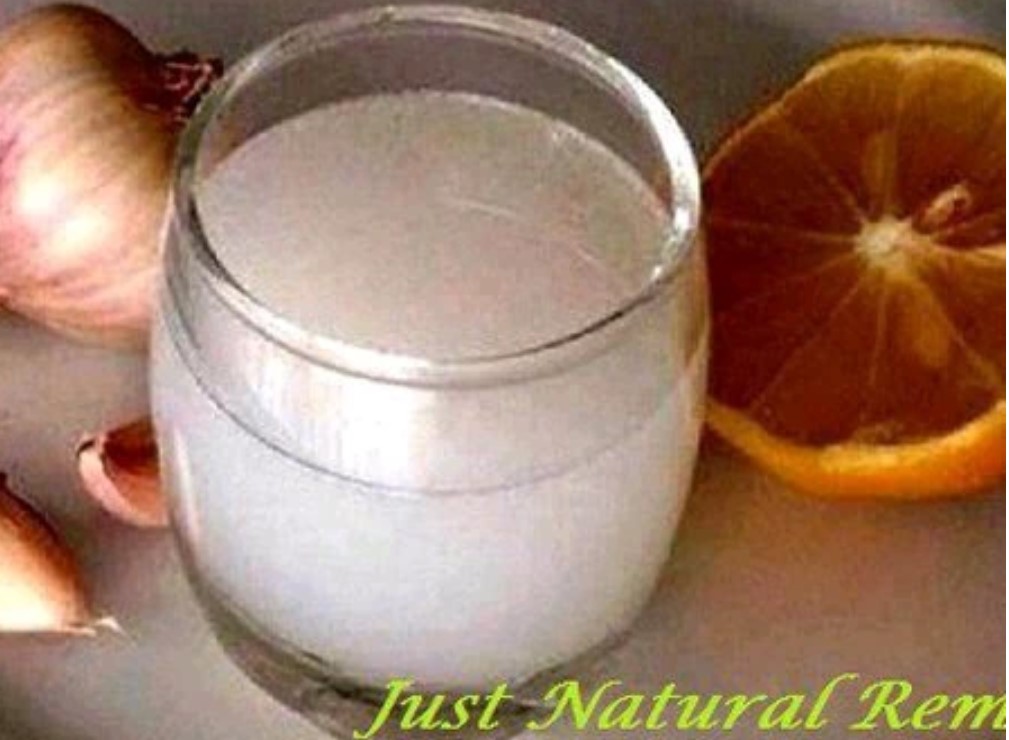Turmeric is a bright yellow spice that has been used for thousands of years in Indian cuisine and traditional medicine. While it adds a distinct flavor and vibrant color to curry dishes, turmeric also provides impressive health benefits.
The main active compound in turmeric is curcumin, a powerful antioxidant and anti-inflammatory agent. However, curcumin is not easily absorbed into the bloodstream on its own. Adding turmeric to a liquid like water can help increase its bioavailability and allow your body to utilize its numerous benefits more effectively.
Drinking turmeric water every day is an easy way to consistently incorporate this amazing superfood into your routine. Here are 8 research-backed benefits you can gain from making turmeric water a daily habit:

1. Reduces Inflammation
One of turmeric’s most well-known benefits is its ability to fight inflammation throughout the body. Chronic inflammation is linked to almost every major disease, including cancer, heart disease, arthritis, Alzheimer’s, and more.
The curcumin in turmeric is a potent anti-inflammatory compound. It works by blocking inflammatory molecules like cytokines and enzymes that contribute to the inflammatory process. Multiple studies show curcumin can be more effective than anti-inflammatory drugs in some cases.
By reducing widespread inflammation, turmeric water may help relieve symptoms of inflammatory conditions like osteoarthritis, rheumatoid arthritis, inflammatory bowel diseases, and more. It can also lower your overall disease risk.
2. Boosts Brain Health

The antioxidant and anti-inflammatory effects of curcumin may help clear away plaques in the brain that contribute to neurodegenerative diseases like Alzheimer’s. Animal studies show curcumin can cross the blood-brain barrier to directly bind and break up protein fragments that form these plaques.
Additionally, curcumin appears to boost levels of brain-derived neurotrophic factor (BDNF), which is a type of growth hormone that helps neurons survive and thrive. Having higher BDNF levels may delay or reverse age-related brain deficits and cognitive decline.
Drinking turmeric water regularly could potentially help improve memory, reduce feelings of stress and anxiety, and protect against diseases that attack cognitive function as we get older.
3. Supports Heart Health
Curcumin exhibits multiple benefits for promoting cardiovascular health. First, it acts as an anti-coagulant to prevent excessive blood clotting and platelet buildup which can lead to heart attacks and strokes.
Turmeric water may also improve the function of the delicate endothelial lining of blood vessels to regulate blood pressure and blood clotting. Some research shows it can lower LDL “bad” cholesterol levels while raising HDL “good” cholesterol.
Furthermore, the anti-inflammatory effects of curcumin can help prevent atherosclerosis, which is the buildup of plaque in arteries that causes most cardiovascular diseases. Overall, curcumin may significantly reduce the risk of heart disease.
4. Aids in Weight Management
If you’re trying to lose weight or maintain a healthy body weight, adding turmeric water to your diet may be beneficial. Curcumin exhibits several properties that could aid weight loss efforts:
● Suppresses inflammation that contributes to obesity
● Regulates blood sugar and insulin resistance linked to weight gain
● Decreases leptin resistance to promote feelings of fullness after eating
● Increases fat burning, metabolism, and cuts belly fat accumulation
In addition, turmeric also supports gut health and prevents gut inflammation that can disrupt your body’s ability to properly metabolize food and absorb nutrients. Good gut health is essential for maintaining a healthy weight.
5. Promotes Detoxification
Turmeric water has detoxifying effects that can cleanse the liver and optimize its function. The liver processes and filters toxins, hormones, and other substances from the blood to purify the body.
Curcumin acts as a powerful antioxidant to neutralize free radicals and prevent oxidative stress that can damage liver cells over time. It also boosts production of detoxifying enzymes that break down harmful molecules for removal.
By supporting optimal liver health and function, drinking turmeric water daily may enhance the body’s ability to detoxify itself of pollutants, heavy metals, carcinogens, and other toxins that can accumulate. This allows other systems and organs to function more efficiently. READ FULL STORY HERE>>>CLICK HERE TO CONTINUE READING>>>

6. Enhances Skin Health
The anti-inflammatory, antimicrobial, and antioxidant properties of turmeric can work wonders for improving skin health both internally and externally. Many people use turmeric face masks and scrubs to treat acne, reduce hyperpigmentation, and give skin a healthy glow.
When consumed in turmeric water, curcumin can help fight inflammation that contributes to acne, eczema, psoriasis, and other inflammatory skin conditions. It protects skin from oxidative stress and free radical damage that causes premature aging.
Additionally, some research indicates curcumin may help skin wounds heal faster by modulating collagen production and improving tissue remodeling. Overall skin texture and complexion may improve with regular turmeric consumption.
7. Defends Against Cancer
While more research is still needed, there is promising evidence that curcumin may play a role in preventing cancer and even slowing the spread of existing cancers. Multiple studies show curcumin can selectively kill cancer cells while leaving healthy cells unharmed.
Curcumin affects over 100 different pathways involved in cancer development, including minimizing DNA mutations, inhibiting tumor growth and metastasis, cutting off blood supply to cancers, and promoting cancer cell death.
Some specific cancers that curcumin may help defend against include colorectal cancer, breast cancer, prostate cancer, multiple myeloma, and pancreatic cancers. Turmeric water could be a helpful preventative addition to a cancer-fighting diet.
8. Eases Joint Pain and Arthritis
Thanks to its potent anti-inflammatory abilities, curcumin from turmeric may offer relief for people suffering from arthritic joint pain and stiffness. It works by blocking inflammatory enzymes and cytokines like IL-6 that contribute to the painful symptoms.
In fact, multiple studies found that taking curcumin was as effective as anti-inflammatory drugs like ibuprofen for reducing arthritis pain and improving physical function, without the concerning side effects like gut irritation and toxicity.
The antioxidants in turmeric water may also protect joints from free radical damage that leads to deterioration. Regularly consuming turmeric may both ease existing arthritis symptoms and help prevent future joint degeneration.
How to Make Turmeric Water
Making turmeric water is quick and simple. All you need is:
– 8-12 oz of water
– 1-2 teaspoons of ground turmeric
– 1 teaspoon of lemon juice or apple cider vinegar (optional)
– Black pepper (optional)
Simply add the turmeric to the water as it heats up and allow it to simmer for 5-10 minutes to activate the curcumin. You can also stir in lemon juice or ACV, which helps increase absorption. Adding a dash of black pepper enhances absorption even further.
Let the turmeric water cool to desired temperature, strain out any clumps, and enjoy either hot or cold. You can also add a bit of honey or stevia to sweeten the earthy taste if desired. Drink up to 3 cups per day for maximum benefits.
Potential Precautions
While turmeric is considered very safe for most people, you’ll want to consult your doctor first if:
– You are pregnant or breastfeeding
– You have gallbladder issues or kidney stones
– You take blood thinners or medications that are metabolized by the liver
Large daily doses of concentrated curcumin supplements may potentially cause side effects like headaches, nausea, dizziness or diarrhea in some individuals. Drinking turmeric water should not cause any noticeable side effects for most healthy adults.
Overall, turmeric water is an easy and affordable way to harness the amazing health benefits of curcumin. From reducing inflammation to protecting brain and heart health, this bright yellow beverage is a simple addition that can significantly boost your overall wellness.
So why not brew up a cup today? Making turmeric water a daily habit may provide ongoing benefits to help you feel your absolute best for years to come!


 HEALTH & LIFESTYLE8 months ago
HEALTH & LIFESTYLE8 months ago
 IN-THE-NEWS9 months ago
IN-THE-NEWS9 months ago
 SPORTS9 months ago
SPORTS9 months ago
 IN-THE-NEWS4 months ago
IN-THE-NEWS4 months ago
 IN-THE-NEWS8 months ago
IN-THE-NEWS8 months ago
 METRO9 months ago
METRO9 months ago
 IN-THE-NEWS9 months ago
IN-THE-NEWS9 months ago
 IN-THE-NEWS4 months ago
IN-THE-NEWS4 months ago





